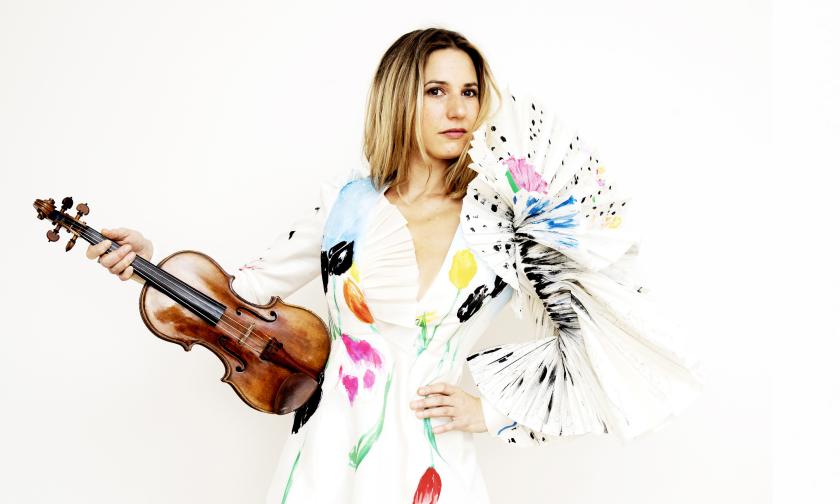The sound from the orchestra was right, with tortured lower strings and clean, clear winds, but entries often sounded a little too “approximate”, and the overall sound only occasionally gelled. Admittedly, that’s a risk baked into performing this piece with its tortuous world of unfulfillable longing, and the Liebestod sounded better with its flickering opening and radiant resolution, but the climax of the Prelude came out of nowhere with little preparation, which is less easy to forgive when it’s really the point of the whole piece.
His Sibelius was another matter. (Wigglesworth pictured below by Chris Christodoulou). The blurring of boundaries which bothered me in Tristan became a positive virtue in Sibelius’ Symphony No 1, with its themes that flow into one another like the tributaries of a river, and the orchestra sounded cracking as it played them. There was a real sense of excitement to the strings’ first theme in full flight, and the bubbling cauldron of winds carried a super sense of anticipation, the brass spitting out shafts of golden sound like beams of light. The second movement’s main theme had the softness of a lullaby when played by these strings, then surged into something more powerful when led by the groundswell of cellos and basses, and the scherzo crackled with excitement. The finale’s edge of high drama set in right from the start with its keening violin line, and the climactic transfiguration of the slow movement’s theme sounded terrific, though I never leave this symphony without a sense that Sibelius’ bathetic ending throws away the huge triumph he has won for himself. ![]() No danger of triumph in The Lark Ascending, a piece whose very appeal lies in a lack of struggle and in the effortlessness of peaceful nature. Violinist Rosanne Philippens knew that no tricks were needed to pull this off, and she played with gentle delicacy and a remarkable sense of understatement, with never a hint of showing off. Even the filigree faster moments in the central section were done with charm and a sense of innate gentleness, the orchestra responding with a languid sense of stillness that suited the work and the interpretation beautifully. Philippens had won me over completely by the time of her ending, which disappeared into the distance with delectable hold-your-breath quietness.
No danger of triumph in The Lark Ascending, a piece whose very appeal lies in a lack of struggle and in the effortlessness of peaceful nature. Violinist Rosanne Philippens knew that no tricks were needed to pull this off, and she played with gentle delicacy and a remarkable sense of understatement, with never a hint of showing off. Even the filigree faster moments in the central section were done with charm and a sense of innate gentleness, the orchestra responding with a languid sense of stillness that suited the work and the interpretation beautifully. Philippens had won me over completely by the time of her ending, which disappeared into the distance with delectable hold-your-breath quietness.
She lost me just as decisively, however, with her far-too-substantial encore, Ravel’s Tzigane. Its fiery exoticism might have been an antidote to the gentleness of The Lark, but long pre-planned encores like this are intrinsically ridiculous. Either do it at the end when people can decide whether they want to stay, or put it on the programme so people know what they’re getting. Whenever I see extra orchestra members clambering onto the stage when the soloist has barely finished their first bow, a part of my spirit sinks.
- Recorded for future broadcast on BBC Radio 3
- More classical music reviews on theartsdesk















Add comment